When the Cognitive Tank Runs Dry
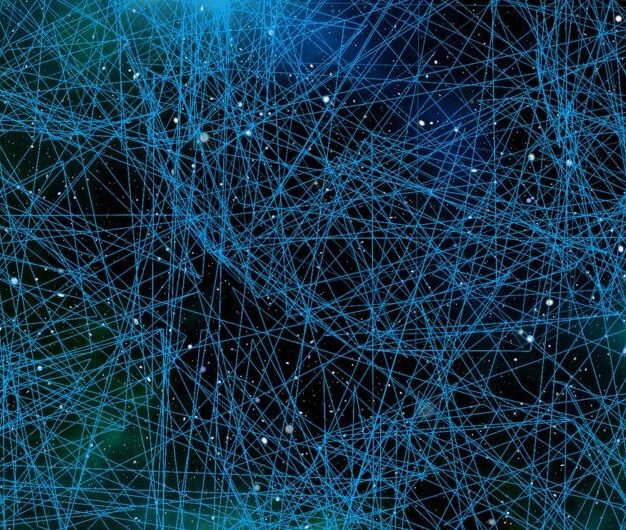
Understanding Neurodivergent Burnout
Neurodivergent burnout is a state of physical and mental exhaustion that occurs when the demands of navigating a neurotypical world exceed an individual’s resources. While burnout can affect anyone, it often manifests differently and more intensely in neurodivergent individuals, particularly those with multiple co-occurring conditions.
The Complexity of Burnout Across Conditions
Burnout can present uniquely depending on an individual’s specific neurological profile:
- Autism: Increased sensory sensitivities, loss of adaptive skills, heightened need for solitude
- ADHD: Extreme difficulty initiating tasks, increased emotional dysregulation, severe executive dysfunction
- Anxiety: Intensified physical symptoms, increased avoidance behaviors, panic attacks
- Depression: Profound fatigue, loss of interest in special interests, increased suicidal ideation
- OCD: Escalation of intrusive thoughts and compulsions, increased rigidity in routines
For individuals with multiple conditions, burnout can be a perfect storm of intensified symptoms across all their neurodivergent traits.
Triggers of Neurodivergent Burnout
Common triggers include:
- Prolonged masking or camouflaging behaviors
- Sensory overload from unsuitable environments
- Chronic stress from navigating neurotypical expectations
- Lack of appropriate accommodations at work or school
- Major life changes or transitions
- Comorbid physical health issues
These triggers can compound for those with multiple conditions, increasing the risk and severity of burnout.
The Impact of Burnout on Daily Functioning
Neurodivergent burnout can severely impact an individual’s ability to function:
- Loss of executive function skills (planning, organizing, initiating tasks)
- Regression in social communication abilities
- Increased meltdowns or shutdowns
- Difficulty performing previously manageable tasks
- Intensified sensory sensitivities
- Chronic physical symptoms (fatigue, pain, digestive issues)
Recognizing Burnout in Neurodivergent Individuals
Burnout may be mistaken for depression, laziness, or deliberate non-compliance. Key signs include:
- A noticeable drop in functioning or skills
- Increased difficulty with sensory processing
- Heightened emotional reactivity or numbness
- Loss of motivation, even for preferred activities
- Physical symptoms without clear medical cause
Strategies for Preventing and Recovering from Burnout
- Radical Self-Care: Prioritizing rest, nutrition, and activities that genuinely recharge you
- Reducing Masking: Allowing yourself to be authentically neurodivergent when safe to do so
- Environmental Adjustments: Creating sensory-friendly spaces and routines
- Setting Boundaries: Learning to say no and communicate your limits
- Seeking Support: Connecting with neurodivergent peers and supportive professionals
Therapeutic Approaches to Address Burnout
Several approaches can be beneficial in preventing and recovering from neurodivergent burnout:
- Somatic Experiencing (SE): This body-oriented approach can help individuals recognize early signs of burnout in their bodies and develop strategies to regulate their nervous system.
- Brainspotting: This therapy can be effective in processing the emotional impact of burnout and building resilience to future episodes.
- Mindfulness-Based Stress Reduction (MBSR): Adapted mindfulness practices can help individuals become more aware of their energy levels and needs, allowing for earlier intervention.
- qEEG Brain Mapping: This tool can provide insights into the neurological patterns associated with burnout, potentially guiding personalized interventions for recovery and prevention.
The Role of Healthcare Providers
Healthcare providers play a crucial role in addressing neurodivergent burnout:
- Recognizing burnout as distinct from other conditions
- Understanding the interplay of multiple neurodivergent conditions in burnout
- Providing accommodations and adjustments to support recovery
- Offering strategies tailored to an individual’s specific neurological profile
Workplace and Educational Accommodations
To prevent burnout, environments should be adapted to neurodivergent needs:
- Flexible scheduling and remote work options
- Sensory-friendly spaces
- Clear, direct communication
- Regular breaks and quiet spaces
- Acceptance of diverse working and learning styles
The Strength in Vulnerability
Experiencing burnout can be frightening, but it can also be an opportunity:
- Deepening self-understanding and self-advocacy skills
- Identifying unsustainable patterns and making necessary changes
- Connecting more authentically with supportive communities
- Developing more effective coping strategies
For individuals with multiple co-occurring conditions, recovering from burnout can lead to a more integrated approach to managing their overall health and well-being.
Conclusion: Honoring Your Neurological Reality
Neurodivergent burnout is a serious issue that requires understanding, compassion, and targeted support. By recognizing the unique ways burnout manifests in neurodivergent individuals, particularly those with multiple conditions, we can develop more effective strategies for prevention and recovery.
Remember, experiencing burnout doesn’t mean you’ve failed. It’s often a sign that you’ve been trying to adapt to a world not designed for your neurotype. Recovery is possible, and with the right support and self-care strategies, you can rebuild your resilience and thrive as your authentic neurodivergent self.
Whether you’re personally experiencing burnout or supporting someone who is, know that this experience is valid and deserving of compassion. By addressing burnout, we move towards a society that truly supports neurodiversity in all its complex, beautiful forms.
Resources to ADHD Comorbid with Other Disorders
Taproot Therapy Collective (Birmingham, AL)
- Treatments: Brainspotting, EMDR, Somatic Experiencing, Lifespan Integration, Parts-Based Therapy, Trauma Mapping.
- Specialties: Specializes in trauma therapy, PTSD, anxiety, panic, and dissociative disorders. Their therapists use integrative methods to help clients heal from trauma at a deep, somatic level.
- Website: gettherapybirmingham.com
1. Crisis Center Birmingham (24/7 Crisis Line)
- Phone: (205) 323-7777
Provides immediate support for individuals in emotional distress, including suicide prevention, trauma, and mental health crises. - Website: crisiscenterbham.org
2. Rape Response Line (Crisis Center Birmingham)
- Phone: (205) 323-7273
Dedicated to providing support for survivors of sexual assault, available 24/7. - Website: crisiscenterbham.org/rape-response
3. Teen Link (Crisis Center Birmingham)
- Phone: (205) 328-5465
Teen-specific support line for youth in emotional or mental distress. - Website: crisiscenterbham.org
4. National Suicide Prevention Lifeline (Serving Alabama)
- Phone: 988
A national 24/7 suicide prevention hotline accessible to individuals in Birmingham and the rest of Alabama. - Website: 988lifeline.org
5. UAB Psychiatry Emergency Services
- Phone: (205) 934-7008
Provides immediate psychiatric evaluation and crisis intervention at the University of Alabama at Birmingham Hospital. - Website: uabmedicine.org
6. Alabama Domestic Violence Hotline
- Phone: 1-800-650-6522
24/7 support for individuals experiencing domestic violence, available statewide, including Birmingham. - Website: acadv.org
7. Birmingham AIDS Outreach Crisis Line
- Phone: (205) 322-4197
Provides crisis support for individuals affected by HIV/AIDS, including mental health services and support for LGBTQ+ communities. - Website: birminghamaidsoutreach.org
8. Alabama 2-1-1 Call Center
- Phone: 2-1-1
A statewide information and referral line connecting individuals to crisis support services for housing, food, mental health, and substance abuse issues. - Website: 211connectsalabama.org
9. Jefferson County Family Resource Center Crisis Line
- Phone: (205) 945-6000
Provides crisis intervention, including family support, domestic violence resources, and mental health services. - Website: jcfrc.org
10. Veterans Crisis Line (Serving Birmingham)
- Phone: 988 (Press 1)
A specialized crisis line for veterans experiencing emotional distress, available nationwide and locally. - Website: veteranscrisisline.net
- Phone: (205) 323-7777
LGBTQ+ and Poly-Friendly Support
Magic City Acceptance Center (MCAC)
LGBTQ+ youth programs, adult support groups, and community events in Birmingham.
Website: mcacbham.org
Birmingham LGBTQ+ Circle of Healing
Support groups for LGBTQ+ individuals focusing on mental health and holistic wellness.
Contact through Magic City Acceptance Center.
Inclusive Therapists
Directory of therapists in Birmingham and Hoover specializing in LGBTQ+ and poly-friendly care.
Website: inclusivetherapists.com
PFLAG Birmingham
LGBTQ+ support groups for families and friends of LGBTQ+ individuals, offering mental health and advocacy resources.
Website: pflaga.org/birmingham
Steel City Spectrum
Provides support and resources for the transgender and gender-nonconforming communities in Birmingham.
Website: steelcityspectrum.org
Free & Low-Cost Therapy and Counseling
Impact Family Counseling (Birmingham, AL)
Provides sliding-scale counseling services for trauma, anxiety, depression, and family therapy.
Website: impactal.org
Firehouse Shelter (Birmingham, AL)
Offers mental health services and crisis support for homeless individuals in the Birmingham area.
Website: firehouseshelter.com
Pathways Birmingham
Women’s shelter offering mental health and trauma support for homeless women and children.
Website: pathwayshome.org
United Way of Central Alabama
Offers access to free or low-cost mental health counseling and crisis intervention through partnerships.
Website: uwca.org
BridgeWays Alabama
Offers family and youth counseling, including trauma recovery, on a sliding fee scale.
Website: bridgewaysalabama.org
Holistic & Alternative Therapy Centers
Taproot Therapy Collective (Birmingham, AL)
Offers holistic mental health services like Brainspotting, EMDR, and somatic trauma therapies.
Website: gettherapybirmingham.com
Birmingham Wellness Institute
Focuses on alternative healing practices such as yoga therapy, mindfulness, and EMDR.
Website: bhamwellness.com
Sojourn Counseling (Hoover, AL)
Provides integrative counseling with a focus on EMDR, trauma work, and mindfulness.
Website: sojourncounseling.com
Red Mountain Therapeutics (Birmingham, AL)
Offers somatic therapies, acupuncture, and integrative emotional healing for trauma recovery.
Website: redmountaintherapeutics.com
Shanti Healing Arts Center (Birmingham, AL)
Focuses on trauma-sensitive yoga, meditation, and holistic therapies for emotional and mental health.
Website: shantihealingarts.com
Lifespan Integration & Trauma Mapping
Birmingham Counseling Associates
Provides Lifespan Integration therapy for complex trauma and PTSD.
Website: bhamcounseling.com
Lifeline Counseling (Hoover, AL)
Trauma-informed care specializing in Lifespan Integration and Somatic Trauma Mapping.
Website: lifelinehoover.com
River Oaks Counseling
Offers Lifespan Integration and other trauma-focused therapies for PTSD and dissociation.
Website: riveroakscounseling.com
Emotional Wellness Counseling
Provides Lifespan Integration therapy and somatic trauma work.
Website: emotionalwellnesshoover.com
qEEG Brainmapping and Neurofeedback Resources
Focus-MD Birmingham
Specializes in ADHD treatment and qEEG brain mapping for neurodevelopmental disorders.
Website: focus-md.com
Birmingham Neurofeedback Clinic
Provides qEEG brain mapping and neurofeedback for trauma, anxiety, and ADHD.
Website: birminghamneurofeedback.com
Alabama Neurofeedback
Offers qEEG brain mapping and neurofeedback to improve brain function and emotional regulation.
Website: alneurofeedback.com
Covenant Neuropsychology
qEEG brain mapping services for trauma-related symptoms and neurological issues.
Website: covenantneuro.com
Psych Wellness South (Hoover, AL)
qEEG and neurofeedback services to treat anxiety, ADHD, and trauma.
Website: psychwellnesssouth.com
Poly-Friendly & Non-Monogamy Support
Inclusive Therapists
Directory for poly-friendly and non-monogamy affirming therapists in the Birmingham and Hoover areas.
Website: inclusivetherapists.com
Birmingham LGBTQ Circle of Healing
Offers support for polyamorous and non-monogamous relationships.
Contact through Magic City Acceptance Center.
Alabama Polyamory Network
A supportive community providing mental health resources for polyamorous individuals.
Contact via Meetup: meetup.com/polybirmingham
New Hope Counseling
Poly-friendly therapy services, offering support for non-traditional relationships.
Website: newhopecounselingbham.com
Open Counseling Birmingham
Provides mental health counseling for those in polyamorous or open relationships.
Website: opencounseling.com
Youth & Family Services
Oasis Counseling for Women and Children
Provides trauma therapy, parenting support, and family counseling.
Website: oasiscounseling.org
Children’s Aid Society of Alabama (Birmingham)
Family and individual counseling, including trauma services for children.
Website: childrensaid.org
Aletheia House
Mental health and substance abuse services for families, including trauma recovery programs.
Website: aletheiahouse.org
Big Brothers Big Sisters of Greater Birmingham
Offers mentorship and emotional support for at-risk youth.
Website: bbbsbhm.org
The Exceptional Foundation
Provides support for children and adults with special needs, including mental health resources.
Website: exceptionalfoundation.org














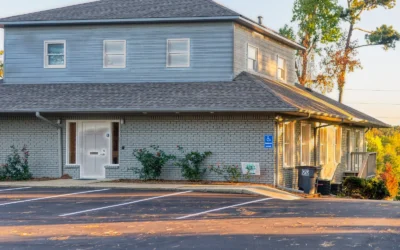




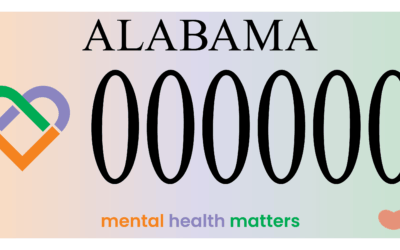
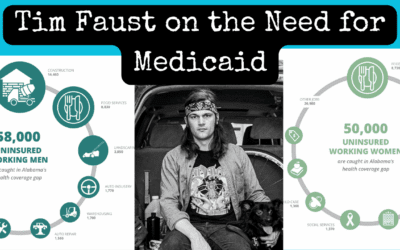

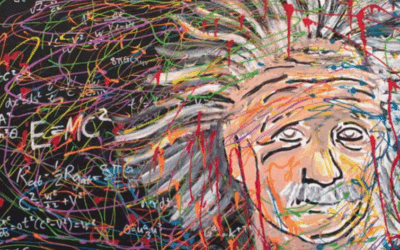



0 Comments